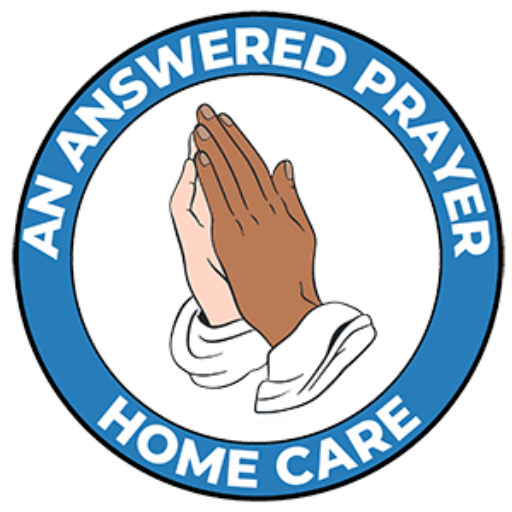According to the CDC, 6 out of 10 Americans have at least one chronic illness, such as heart disease, diabetes, or cancer, that lasts 1 year or more. Apart from controlling the condition, one crucial thing that should be considered is the impact on the quality of life, as health can take an even bigger hit without it. To prevent that from happening in the first place, help in the form of chronic illness home care can be the right solution for you or your loved one dealing with one.
Continue reading as we help you understand what chronic illness is, its impact, and how to manage your life around it with in-home care.
Understanding Chronic Illness
What is a chronic illness?
Unlike acute conditions like cold or flu, chronic illness does not improve in a few days or weeks. Instead, it will stick around for a year or sometimes more, complicating daily lives. Many conditions are considered chronic, like asthma, COPD, diabetes, chronic heart disease, autoimmune, chronic kidney disease, and many more. Acute conditions may also become chronic if they are never resolved in the first place.
How chronic illness affects daily life
How illnesses impact life is different. Rheumatoid arthritis, for example, causes constant pain that may disturb many activities. On the other hand, COPD could mean constant shortness of breath, making even simple tasks like walking or climbing stairs feel overwhelming.
Also, let’s not forget about the emotional part. The limitation on independence, the inability to do activities, or even the anxiety with the disease itself can undoubtedly take a toll. Without a solid support system in place, it’s not just the body that suffers—the mind can begin to struggle, too, often leading to feelings of isolation, frustration, or even depression.

Key Ways In-Home Care Helps Manage Chronic Illness
1) Medication reminders and monitoring
It is no secret that chronic illness usually requires more than one medication daily for a long time or even forever. The ongoing condition and the symptoms it causes can be a lot to handle. A chronic illness home caregiver can help manage medication, monitoring the time taken and various side effects.
2) Support with daily living activities
Having a chronic illness home caregiver there to help with daily activities can make a huge difference. For example, individuals with difficulty breathing may need someone to help move around, clean their houses, and even care for pets. On the contrary, that kind of help may not be required for someone with diabetes who’s capable of doing all that. Instead, they may need someone to plan their meal according to the doctor’s suggestion.
3) Nutritional guidance and meal preparation
In addition to long-term medications, people with chronic disease often need to make significant lifestyle changes, especially when it comes to their diet. Without any help from caregivers, preparing nutritious meals while keeping every dietary restriction and nutritional guidance in mind can be challenging, and it is easy to fall back on convenient but unhealthy options like takeout or processed foods.
4) Emotional support and companionship
Now, let us try to put ourselves in the shoes of someone living with chronic illnesses. Imagine the constant discomfort, fatigue, pain, or whatever symptoms that come with the disease every day for a long time. Surely, empathetic support and companionship from a good caregiver can make a difference.
5) Monitoring for health changes
Lastly, chronic illness home care provided by a caregiver can help monitor any changes in chronic conditions, whether they are improving or declining. That way, coordinating with doctors and healthcare providers can be done better and more easily. For families, this monitoring also means they can have peace of mind knowing someone is always there to monitor their loved ones.

Advantages of Managing Chronic Illness at Home
Comfort and familiarity
For someone dealing with ongoing health issues, being in a familiar environment can reduce unnecessary stress and anxiety. Home is where personal items and loved ones are, and routines are established, all of which can contribute to emotional well-being and a better overall quality of life.
Customized care plans
Another advantage of choosing chronic illness home care is the customizable care options it offers. A reputable in-home care provider like An Answered Prayer Home Care will begin with an individualized matching process to determine the client’s unique needs and suitable caregivers. However, should any changes occur along the way, professional caregivers know how to adapt by changing care plans to suit the current needs and make the transition as smooth as possible for the clients and their loved ones.
Family involvement
Even if a professional caregiver is the one who provides the full-time or respite care, Answered Prayer Care believes that family remains an integral part of the caring process and is committed to having the involvement of loved ones. To achieve that, we will maintain open communication and encourage families to stay engaged with the care of their loved ones.
End Note
Managing chronic disease is never easy. But with the help of an in-home caregiver, you or your loved one dealing with this condition will not have to face it alone. Whether it is to help with daily tasks, medication management, or simply having someone to listen, navigating day-to-day can be less overwhelming and more manageable. In the long run, it can even help promote health and improve quality of life.
Before any chronic condition becomes too much to handle, reach out to our team at An Answered Prayer today and learn how our compassionate caregiver can help.

